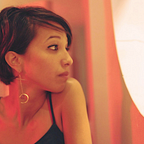The Ukraine crisis has revealed the Western ideal of the deserving refugee
Under the guise of mourning something the West like to call ‘civilization’, the utterly uncivilized coverage of the Ukraine-Russia crisis is a shameful representation of the West’s failure to recognize racial bias when reporting on and reacting to war.
They seem so like us.
That’s what makes it so shocking.
What follows these two sentences is a list of comparative similarities that Daniel Hannan portrays as some kind of cultural archetypes, presented as motivators for why we should associate and empathise with the Ukranian people (aside from the fact they “seem so like us”: “Netflix”, “Instagram accounts”, “free elections”, “uncensored newspapers”.
Not only is this in itself insulting to Ukrainians, as if being recognised as “a European country” with access to social media and streaming services is in itself a surprise.
(It also immediately highlights what the West thinks “we” look like — and what it thinks Ukrainians look like, too.)
What Hannan goes on to describe as a “smug sense of security” surrounding the West’s “democratic hegemony” is actually an arrogant inflation of worth, importance, value and being, that are all ultimately rooted in whiteness.
Western governments have rallied and pushed the narrative that Russia’s invasion of Ukraine is a threat to democracy, freedom, and all the values that we hold dear. I’m not arguing that this is true — but it is true because the foundational ‘whiteness’ of it all is being threatened, and that is why it is important that we care about this, now.
There is a hierarchy to democracy where the US and the UK stand at the top — separate, now, from Europe, since the UK has had its own existential crisis of worth and thinks it is better off without — followed by West and Central Europe, then Eastern Europe. Ukraine isn’t part of Europe (yet), but the EU understandably feels the geopolitical threat towards the bloc because of Ukraine’s geographic proximity to and political partnerships with the region.
But to every Western, NATO, European ally of Ukraine, I am calling you out on this now — the reason you care so much about Ukraine is because Russia’s presence there represents a threat not to democracy itself but to your ideas of democracy, which are so deeply interwoven with your sense of identity that you feel personally threatened, and that is what makes this conflict more important than all the other fights for ‘democracy’ in any Middle Eastern, Asian or African country where the West firmly positioned themselves as bastions of democratic ideals while harbouring and encouraging refugee resentment at home.
What Hannan calls “an attack on civilisation itself” embodies the broader, politically embedded notion that certain regions of the world are civilised while others are not, which in turn has entirely shaped (or been shaped by, it’s hard to tell what came first) foreign policy where the West has been at the helm of liberation and conflict resolution.
During a BBC news interview, Ukraine’s Deputy Chief Prosecutor, David Sakvarelidze, spoke of “European people with blue eyes and blonde hair being killed”.
On CBS, foreign correspondent Charlie D’Agata explained that the situation in Ukraine “is not Iraq or Afghanistan”, since Kyiv is a “relatively civilized, relatively European city”. (Note: relatively.)
(A further thread of examples can be read here.)
Ultimately, though, we are reminded that this war is evil, monstrous and unforgivable because the victims look like white people in civilised Western countries and have access to the internet just like we do, they’re more than refugees trying to escape war, they could be like any white person walking down the street next to you.
It’s possible that decades of reporting on war and conflict by Western outlets have led to a to a desensitization, but this conflict is now geographically — and racially — closer to home.
To care about particular wars and refugees because they fit an institutional and journalistic bias is the true monstrosity. It is a reflection of how, still, in the face of international heartbreak, the best offering of dedication and support the Western purveyors of “equality”, “fairness” and “justice” can provide is one of the all-too-familiar hypocrisy of whiteness, of caring when you can put yourself in their shoes because of where they live, how they look or the way they dress.
but here’s the thing, you are either against war, or for it; you either support refugees, or you don’t; you either fight to protect innocent people being killed, or you don’t.
That’s the only line.
